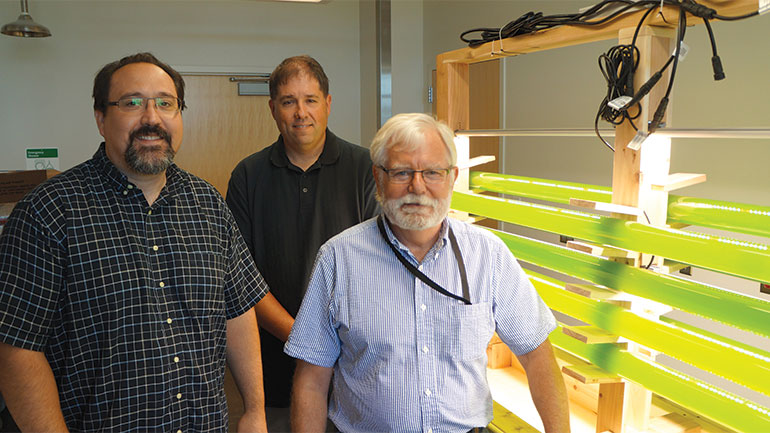
A possible solution for one form of water pollution is moving out of the lab and into the field in Nebraska, a development that could revive some unused wells and save some towns a lot of money.
Too much nitrate in water can cause infertility in humans and livestock, and it can lead to methemoglobinemia, also called “blue baby syndrome,” a treatable condition in which red blood cells don’t carry enough oxygen to young bodies. To avoid these difficulties, the Environmental Protection Agency has set a limit on nitrates in drinking water of 10 parts per million.
DWFI Faculty Fellow Paul Black is growing algae that feeds on nitrogen fertilizer runoff from farm fields and other sources. He believes passing nitrate-polluted water through algae and adding carbon dioxide under the right lighting for photosynthesis can solve many of the contamination problems. The algae can also then produce oil, which could be used as an alternative fuel, and other biomass material, which could be ground up and used as fertilizer.

